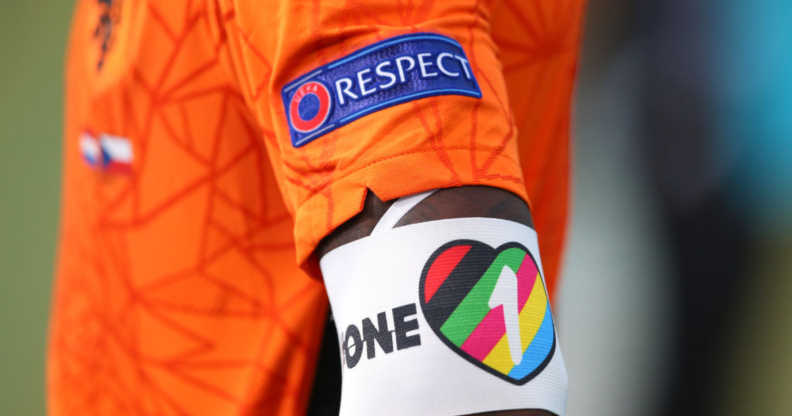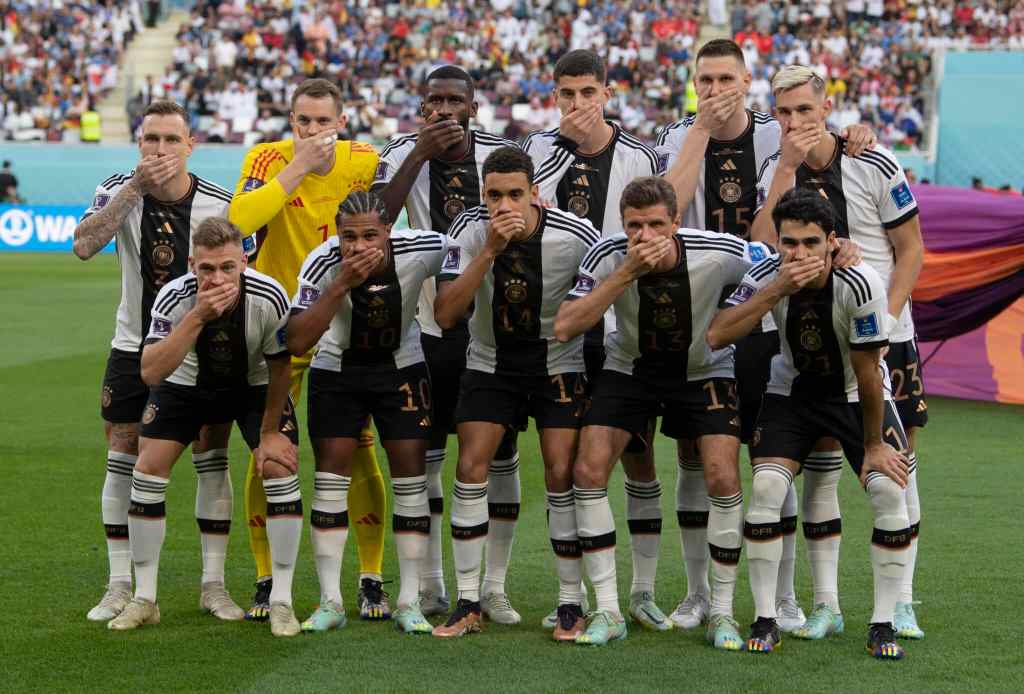Australia football boss ‘confident’ rainbow armbands will be worn at 2023 World Cup

Football Australia chief executive James Johnson has said he’s ‘confident and optimistic’ that the rainbow armband ban will be lifted. (Getty)
Australian football chief James Johnson says he’s “optimistic” players will be allowed to wear rainbow armbands at the women’s World Cup.
The OneLove armbands were banned at the 2022 Qatar World Cup due to the host country’s extreme anti-LGBTQ+ laws. Players were told they could face instant yellow cards and “sporting sanctions” if they wore the rainbow armbands.
There are concerns this stance will extend to the women’s World Cup which is being held by Australia and New Zealand from 20 July to 20 August 2023.
In March, the International Federation of Association Football (FIFA) said “no decision has been taken in relation to armbands”.
However, on Saturday (13 April), Football Australia chief executive Johnson told The Observer he is “confident” that FIFA will allow rainbow armbands to be worn, and said the organisation isn’t just “paying lip service”.
“We’re in the middle of that process and we’re pretty confident and optimistic that we’ll end up in a good place: a place where players have the ability to express themselves in certain areas, which keeps the players happy, it keeps the host nation happy and also FIFA happy as well,” he said.
“So I do think there’ll be a resolution ahead of the Women’s World Cup.”
The football chief explained that Australian players would be able to wear bands representing issues such as “LGBTQ+ and Indigenous rights, First Nation rights” but added this may not reflect “players all around the world”.
During the 2022 men’s World Cup, six countries – including England – that had pledged to wear the OneLove armband in Qatar ditched them after captains were threatened with yellow cards.
The countries were prepared to face fines for breaking kit regulations, but they couldn’t afford to have players receive yellow cards or be forced to leave the field.
Germany posed with hands over their mouths after they were threatened with yellow cards for wearing the OneLove armband to show they were being silenced.
In response to criticism, FIFA bosses urged players to “focus on the football” rather than “handing out moral lessons”.

Johnson said that talks were taking place to ensure this didn’t happen again.
“One of the key learnings for us as a host with the Qatar World Cup was seeing how players wanted to use that platform to push issues that were important to them.
“That came through very strongly. And in the case of Qatar, the competition rules were at odds with that desire of the players. So we’re cognisant of that.”
England captain Leah Williamson, who won’t be playing at the World Cup due to an injury, said in February that the Lionesses want to wear the armbands during the tournament.
“We’re never shy in saying what we stand for, we’re a squad that promotes inclusivity and equality, we obviously have a number of people that feel very strongly about it,” she said.
“So, for us to stand in solidarity with that is important to us but it’s something we’ve always done, it’s something we’ll continue to do.
“We’re not just impacting football, we’re trying to have a positive impact on society too and that’s one of the ways we can do that.”

